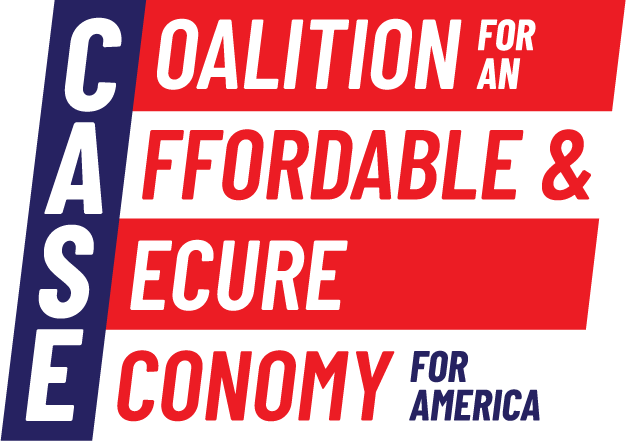Bordering Canada, it’s no surprise that Maine’s economy is deeply intertwined with that of our northern neighbor. Trade with Canada supports 60,000 Maine jobs. In 2024, $6 million in goods were traded between Canada and Maine, with 70% of Maine’s imports coming from Canada and nearly half of the Pine Tree State’s exports going to Canada.
Following President Trump’s tariffs in 2018, lobster processors watched export markets evaporate overnight, paper mills faced punishing costs on Canadian wood pulp, and families saw heating oil prices spike during brutal winter months. Now, history threatens to repeat itself with even steeper tariffs, including a 10% levy on Canadian energy imports, such as fuel and gasoline, that could send Mainers’ already-high winter heating costs soaring.
The ripple effects extend far beyond energy bills. Small manufacturers relying on Canadian steel face production delays, fishermen risk losing their largest export market and border communities worry about dwindling tourism dollars. This, in addition to new data that shows increasing tariffs could cost the average household $4,700 per year, has Mainers worrying about what tomorrow may bring.
Tariff Impact On Maine During President Trump’s First Term
- Following President Trump’s initial tariffs in his first term, Chinese tariff retaliation caused farmers to suffer export losses totaling $27 billion. (Maine Center for Economic Policy, 4/13/25)
- In Maine, lobster exports to China – the state’s second biggest customer – dropped 84% during the first 11 months of the 2018 tariffs. Wild blueberry exports dropped nearly 100%. (Maine Center for Economic Policy, 4/13/25)
- The average dairy farm in Maine suffered $50,000 in losses following the president’s 2018 tariff policies. (Central Maine, 8/10/19)
- Construction costs surged as tariffs on Canadian supplied lumber added an estimated $9,000 to the cost of constructing a single-family home. (HousingWire, 6/14/18)
Tariff Impact On Maine Today
- Mainers could see a 10- to 20-cent increase per gallon at the gas pump and a 20- to 30-cent increase per gallon of home heating oil. Electricity rates are also expected to rise with some county residents projected to see a 5% increase on their monthly bill. (Maine Center for Economic Policy, 4/13/25)
- The Maine office of tourism is expecting a 25% drop in Canadian tourists this year and a 9.5% drop in international visitors overall. (Maine Center for Economic Policy, 4/13/25)
- Home prices for Mainers could rise between 5% and 10% on top of prices that have already risen 75% in the last five years following increased costs for building materials. (Maine Center for Economic Policy, 4/13/25)
- Lobster, one of Maine’s primary exports, is currently subject to 84% retaliatory tariffs from China and may be subject to renewed retaliation from the EU. (Axios, 4/9/25)
What Mainers Are Saying About Tariffs Today
- Jim Jutras, Owner, Appliance Warehouse: “Natural inflation is one thing. These tariffs could double prices and it’s not what we want.” (Portland Press Herald, 4/10/25)
- Homebuilders and Remodelers Association of Maine: “The Trump administration’s latest tariff increases are fueling economic uncertainty, leaving small businesses and consumers concerned about their future. Unpredictable trade policies are forcing business owners and homebuilders to rethink their business plans, and creating supply instability, and consumers are sharing concerns about higher prices. The result is a growing sense of pessimism across industries, with concerns mounting over long-term economic stability.” (Portland Press Herald, 4/10/25)
- Jarrod Maxfield, Owner, Necessary Technology; Windham, Maine Town Councilor: “We have big projects we have been working on for decades. We don’t know what’s happening with tariffs. We don’t know if federal grants are going to come through. Nothing is concrete.” (Portland Press Herald, 4/10/25)
- Maxfield: “There are big questions about how tariffs are going to impact towns and taxpayers. All you can do is plan for the worst and hope for the best.” (Portland Press Herald, 4/10/25)
What Mainers Said About Tariffs During President Trump’s First Term
- Senator Angus King (I-ME): “Consumers are going to pay the tariffs. It’s a tax on a lot of consumer goods … $200 billion coming in. The retaliation is affecting all kinds of sectors – I’ll give you one example: lobsters from Maine. Exporting lobsters from Maine to China, one of our markets we worked for years to develop, is now virtually dead because of the retaliatory tariffs of the Chinese.” (FOX Business, 5/14/19)
- Senator King: “It’s a high-stakes game. If it works, fantastic, if it doesn’t and it drags on it’s going to hurt Maine, it’s going to hurt our lobster industry, it’s going to hurt business and it’s going to hurt the American consumer.” (News Center Maine, 5/14/19)
- Luke Holden, Owner, Luke’s Lobster: “The reality is that these tariffs have created a very long-term uphill battle and we’ve just started to climb that hill.” (Bloomberg, 11/7/18)
- Annie Tselikis, Executive Director, Maine Lobster Dealers’ Association: “I’d love to see these tariffs not go through for the sake of our industry and the Maine economy. At this point it’s really about American jobs.” (The New York Times, 6/22/18)
- Wade Merrit, Director, Maine International Trade Center: “There is so much integration between our natural resource-based industries. It means you couldn’t easily put a wall through here without paying on both sides. Putting a tariff between those would cause significant damage on the Canadian side, too. My guess is that we’ll be OK, but who knows?” (Portland Press Herald, 7/1/18)

